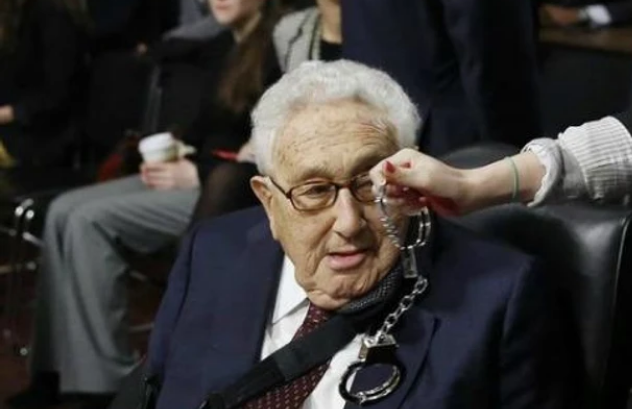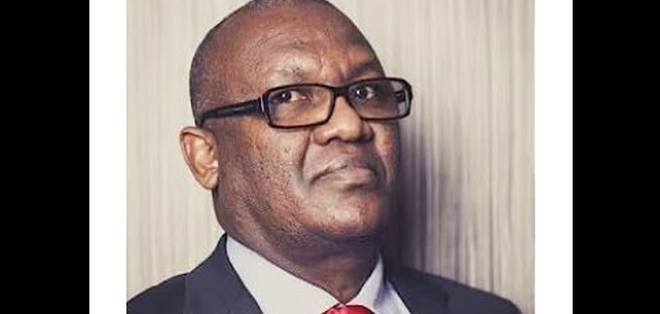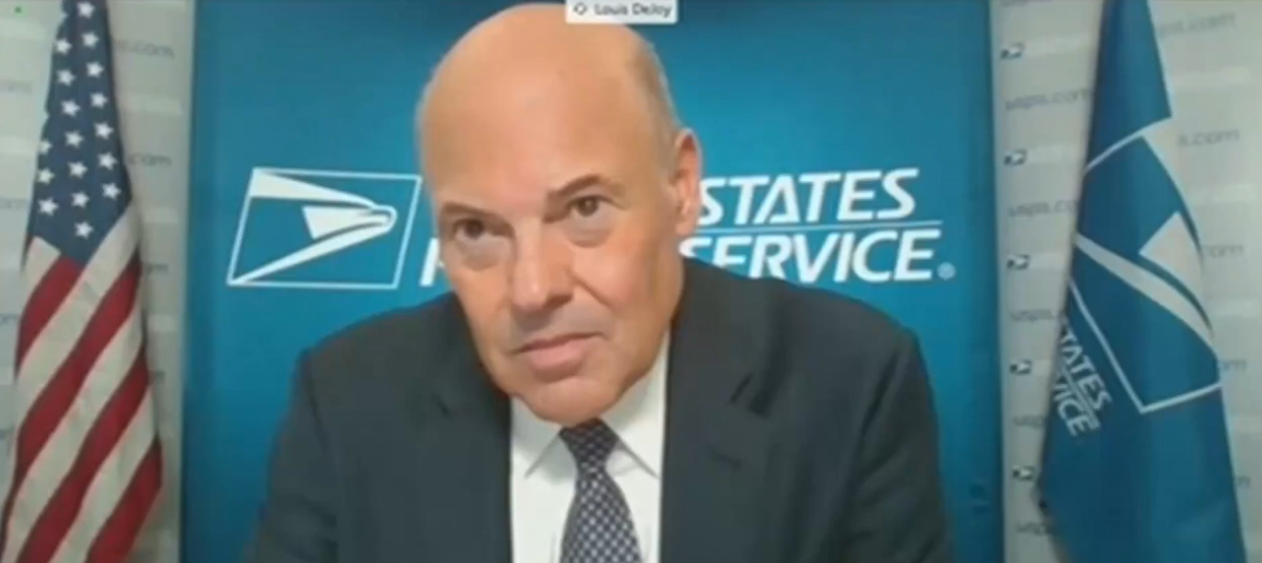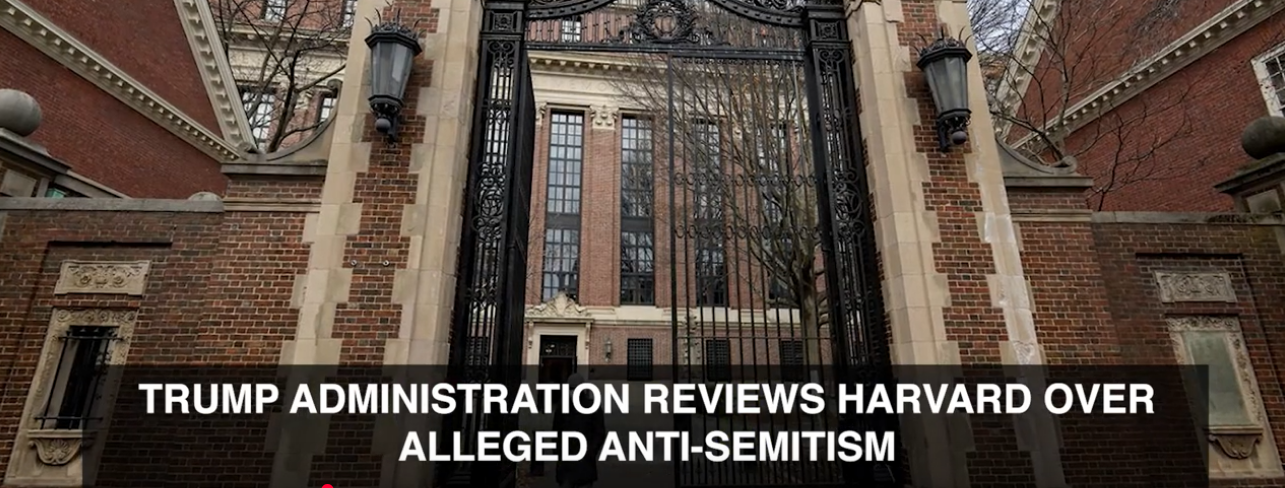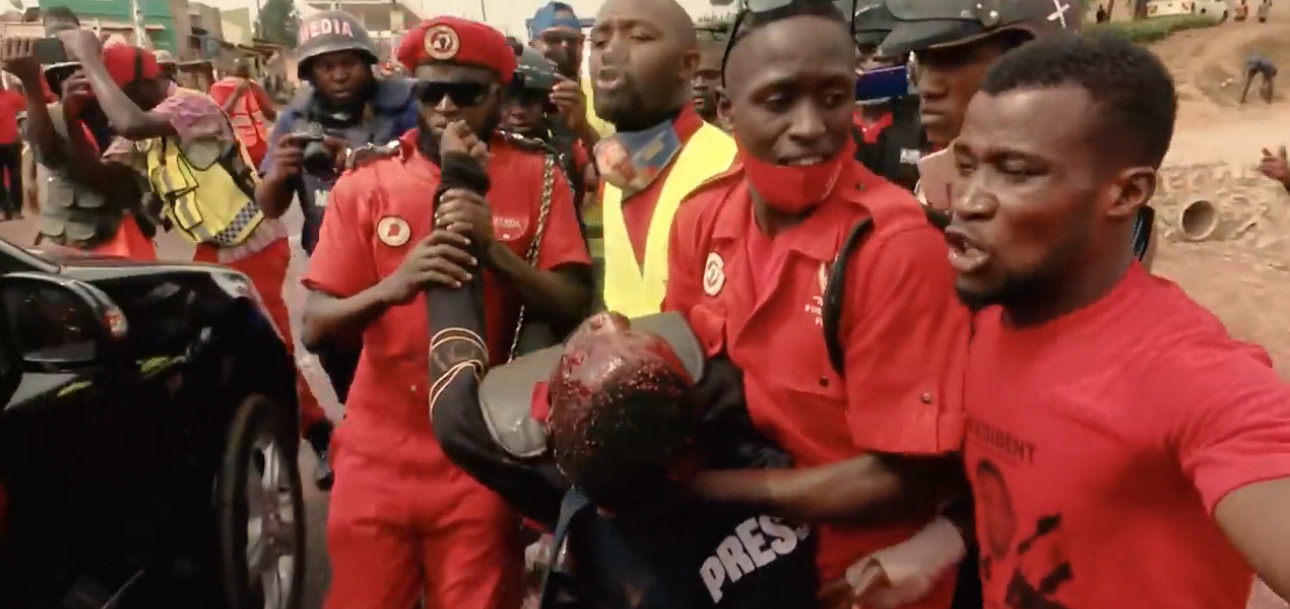Photos: CODEPINK\YouTube Screenshots
On November 29, 2023 former National Security Adviser and Secretary of State Henry Kissinger, died at his home in Connecticut; he was 100 years old. Like a well-rehearsed orchestra, the corporate media immediately subjected the public to rendition after rendition, of how a model “statesman” and exemplary human being he was. True to form, the corporate media suffers from a chronic affliction of lies, misinformation, “turning history on its head,” and a “sanitization” of the doers of evil.
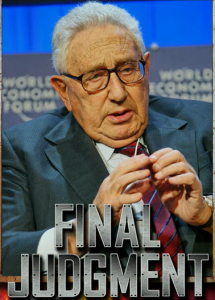
Henry Kissinger was no “statesman.” He facilitated and encouraged the most heinous of war crimes on behalf of the United States government in Asia, including extending the Vietnam war into Cambodia; genocide in east Timor and Bangladesh; encouraged US intervention in thwarting the national liberation movements in Southern Africa. He supported the overthrow of progressive governments, and the installation of despotic and tyrannical regimes in Latin-America.
Henry Kissinger should have been tried and punished for committing war crimes and crimes against humanity.
Kissinger Presided Over Death And Destruction
Henry Kissinger was born on May 27, 1923, in Furth, Germany and immigrated to the United States in 1938, where he became a naturalized citizen in 1943. Although teaching at Harvard, he served as a consultant to both the Kennedy and Johnson Administrations. Kissinger served as National Security Adviser from 1969 to 1975 and as Secretary of state from 1973 to 1977 for Richard Nixon and Gerald Ford. It is popularly touted that Henry Kissinger was the most influential Foreign Policy diplomat in the US government; during his tenure he had presided over the most notorious and brutal political and military interventions, by the United States, in the domestic affairs of other countries, and was very instrumental in preventing some kind of peace in the so-called middle east.
In the Six-Day War of 1967, Israel attacked the Golan Heights and occupied Gaza and the Sinai Peninsula, eventually taking over the West Bank and the Golan Heights. The then Soviet Union made a proposal that although was fragile to say the least, would nevertheless quell the military hostilities in the area. The Soviet Union was willing to work with the United States to develop a peace plan; but Kissinger worked tirelessly to thwart and prevent this effort. This was mild and relatively insignificant to what Henry Kissinger was notoriously noted for his fundamental role in the United States’ direct involvement in Southeast Asia.
Kissinger’s role resulted in millions of deaths of civilians including men, women and children in Laos, Cambodia, and Vietnam. It has been reported that during his tenure, the United States dropped 9 billion pounds of bombs on Indochina.
In Vietnam, the United States military deprived the Vietnamese of food, including poisoning their crops by spraying Agent Orange over vast regions of farmlands; they “carpet” bombed and
shelled villages; set houses ablaze; bulldozed villages, and lined up and shot families, under claims that they were “Vietcong” combatants. According to the Harvard Medical School and the Institute for Health Metrics and Evaluation at the University of Washington, and Vietnamese government estimates, there were approximately two million civilian deaths, 11 million driven
from their homes and about 4.8 million sprayed with defoliants (Agent Orange).
Nick Turse, writing for the Intercept, quotes Elizabeth Becker a Washington Post correspondent, covering the war wrote in her book: “the United States dropped more than 257,000 tons of explosives on the Cambodian countryside in 1973, about half the total dropped on Japan during World War II.” William Shawcross’ book “Sideshow: Kissinger, Nixon, and the Destruction of Cambodia,” exposes the extent and devastation caused by the illegal bombing of Cambodia, that was ordered and approved by Kissinger; and eventually influenced the formation of the ultra-nationalists Khmer Rouge who reportedly were responsible for the massacre of one-third of the country’s population.
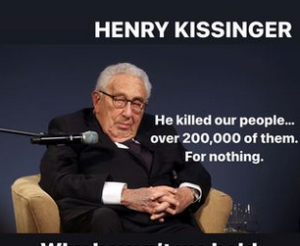
The Vietnam War also saw the use of United States aircraft dropping Napalm bombs on citizens, and the use of flamethrowers that would destroy villages, under the pretext that they were hideouts for “Vietcong rebels.” As destructive and lethal as they were, the bombers were more effective than the flamethrowers; a napalm bomb would leave an area of 2,500 square yards totally engulfed in an almost impossible to contain fire. This undoubtedly and is well documented, resulted in massive civilian casualties. Fifty years after their illegal and inhumane use in the war, some civilians still suffer from medical problems caused by Agent Orange and Napalm.
In Bangladesh, the head of a nationalist party was arrested by General Agha Muhammad Yahya Khan, the military ruler of Pakistan, who later ordered the military to wipe out the Bengalis. Both Nixon and Kissinger were aware of Khan’s genocidal plans against the Bengalis, yet they continued their support, which reportedly resulted in the genocide of 300,000 Bengalis many of whom were Hindus. The Indonesian President Suharto intimated to then President Gerald Ford and Kissinger, that he had intentions of invading East Timor thereby annexing it to Indonesia.
Motherjones.com reports that Ford did not dissuade Suharto, and Kissinger cemented the plan by saying: “It is important that whatever you do succeeds quickly.” The invasion of East Timor resulted in a reported 200,000 deaths.
In Latin-America, Kissinger’s role was indelible pronounced in the coups against the democratically elected government of Salvadore Allende of Chile in 1973; the overthrow of Isabel Peron of Argentina in 1976, and the support of the despotic and murderous regime of Anastasio Somoza of Nicaragua. Henry Kissinger was the United States’ pivotal player in Operation Condor, a program where military juntas of Latin America shared intelligence information and collaborated in the persecution and murder of progressive activists.
In justifying his role in the US backed Chilean coup, Kissinger said: “ I don’t see why we need to stand by and watch a country go communist due to the irresponsibility of its people. The issues
are much too important for the Chilean voters to be left to decide for themselves.” Kissinger and Nixon orchestrated the 17-year take over and dictatorship by Augusto Pinochet, which resulted in thousands of civilians killed, disappeared, or arbitrarily imprisoned.
Argentina fared no better. In what came to be known as the Dirty War that involved torture and disappearance, a reported 30,000 civilians were killed by the military junta as a result of Kissinger’s and Nixon’s involvement.
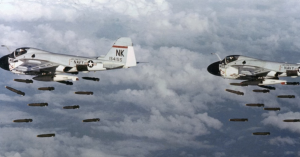
The “Documented” Verdict On Henry Kissinger
Understanding Henry Kissinger’s role in politics, is best seen within the context of the international class struggle; the struggle between labor and capital. The struggle between capitalist oppression and exploitation and the self-determination of countries; in short, national liberation.
During Kissinger’s tenure, national liberation movements were increasing globally especially in Asia, Africa, the Caribbean, and Latin America. Progressive movements were challenging the
imperialist status quo, especially that of the United States; where some of these movements came to power, they opted for a path of non-capitalist social development. They instituted social programs, nationalized banks, and certain key economic industries; and they developed diplomatic relations with countries of the socialist bloc. With the Cold War in full swing, the United States could not allow this to continue and expand; its hegemony was challenged and its “spheres of influence” was dwindling.
Henry Kissinger was the political representative of the most reactionary section of the ruling class; he consciously supported the Monroe Doctrine of intervention and militarism and was also obsessed with the “great power” chauvinist ideology of the United States’ ruling circles. Henry Kissinger was no statesman or moral icon. He was an ideologically backward, politically
arrogant, and racist politician; all the countries where he helped and facilitated destabilization and overthrow, were countries of color. His actions and policies resulted in the deaths and
maiming of millions of innocent civilians; Kissinger actively presided over war crimes and crimes against humanity. He should have been arrested, tried, and punished for those actions
and Policies.
Kissinger was an unapologetic, uncompromising, and defiant “agent” for imperialism; he endeavored to preserve the safety and expansion of United States imperialism, at all costs and
wherever. The interests of the “empire” is paramount at home and abroad; Henry Kissinger hated dissenters. Even after leaving the White House, he continued his service in the interest of
capital, by setting up Kissinger Associates; an international consulting firm with multi-national clients such as Coca-Cola, American Express, Volvo, and Anheuser-Busch, among others. He and his clients leveraged his international reputation and influence to broker deals with governments that would favor United States capitalist interests.
Apart from his academic qualifications (he is a PhD), there is nothing morally or ideologically commendable about Henry Kissinger; his tenure as a government official is filled with
documented evidences of a foreign policy of genocide, destabilization, ethnic cleansing, and war crimes.
For those of us who are students of global social history, along with the survivors of his murderous policies, and those who do not “turn history on its head,” there are no tears, sadness, or condolence on his death; instead, there is disappointment that he escaped punishment, for the devastation and deaths he caused to many countries and their citizens.
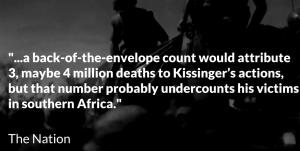
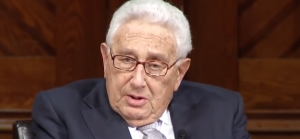
Richard Dunn can be contacted at: richarddunn75@gmail.com
